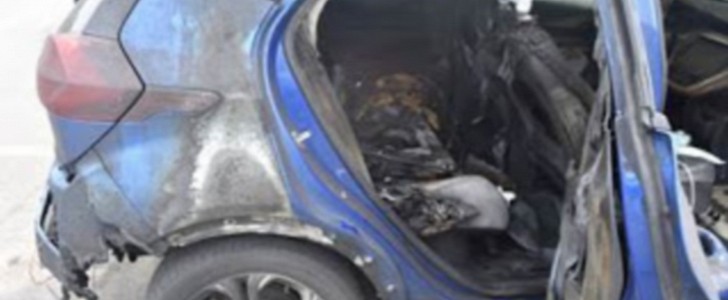When Takata disclosed its airbags could send deadly shrapnel flying towards occupants, all manufacturers that bought them had to replace these components. If LGES (LG Energy Solution) sold its batteries both to GM and Hyundai, why only the Korean carmaker is replacing the battery packs that are catching fire on Kona EVs? That is what I asked GM when it released its final recall for the Chevy Bolt EV, and I never received a satisfactory answer. Sadly, it may have emerged from a fire on Tim Briglin’s Bolt EV, a car that had already gone through what GM called its the final recall.
The repair was qualified as such because GM had already provided a temporary software fix when the first fires emerged. That update limited maximum charging to 90% of the battery pack capacity. On May 1, 2021, another Chevy Bolt that received that provisional fix caught fire in Ashburn, Virginia. Summing up, the first attempt to avoid the problem was not effective. That owner saw his car burn on the same day he received the warning about the final solution, according to Electrek.
That website also talked to Briglin and discovered the circumstances of the new fire. The Vermont house representative – known for being an EV advocate – parked his car at home at around 7 PM on June 30. A while later, he started charging it. The total charge would be achieved by 4 AM on July 1. At 6:30 AM, he heard a “very loud sucking noise” and saw smoke coming out of the rear of his car.
Vermont volunteer firefighters were quick to solve the issue, and his car did not burn as much as others. Despite that, the vehicle was destroyed in the fire, according to Matthew Hill, the Vermont State Police detective sergeant that took care of the case. We got in touch with him to learn if GM contacted him, among other doubts. We’ll update this article if he answers.
The Chevy Bolt EV fires seem to be closely related to the ones Hyundai experienced with the Kona Electric. They occur in similar circumstances and have the same battery supplier. Hyundai chose to replace 75,680 battery packs in units of this car, all of them manufactured at LGES’s Nanjing factory. The cause would have been a folded anode tab.
More recently, a European the Kona Electric also caught fire in Oslo, Norway. It is possible that its battery pack was manufactured elsewhere, but Hyundai did not confirm that information so far.
To Electrek, GM said it is aware of the fire and that it is under investigation. What the company still refuses to disclose is the defect’s cause. We know it is not an issue with the separators because GM was quick to deny that when it thought Hyundai’s problems were related to that part of the cell. As Hyundai already stated, they were not.
The most effective remedy GM proposed so far for the Chevy Bolt EV fires is a silent buyback program it is carrying out in the US. Rumor has it that GM only agrees to repurchase the cars in states where lemon car laws are more severe.
That website also talked to Briglin and discovered the circumstances of the new fire. The Vermont house representative – known for being an EV advocate – parked his car at home at around 7 PM on June 30. A while later, he started charging it. The total charge would be achieved by 4 AM on July 1. At 6:30 AM, he heard a “very loud sucking noise” and saw smoke coming out of the rear of his car.
Vermont volunteer firefighters were quick to solve the issue, and his car did not burn as much as others. Despite that, the vehicle was destroyed in the fire, according to Matthew Hill, the Vermont State Police detective sergeant that took care of the case. We got in touch with him to learn if GM contacted him, among other doubts. We’ll update this article if he answers.
The Chevy Bolt EV fires seem to be closely related to the ones Hyundai experienced with the Kona Electric. They occur in similar circumstances and have the same battery supplier. Hyundai chose to replace 75,680 battery packs in units of this car, all of them manufactured at LGES’s Nanjing factory. The cause would have been a folded anode tab.
More recently, a European the Kona Electric also caught fire in Oslo, Norway. It is possible that its battery pack was manufactured elsewhere, but Hyundai did not confirm that information so far.
To Electrek, GM said it is aware of the fire and that it is under investigation. What the company still refuses to disclose is the defect’s cause. We know it is not an issue with the separators because GM was quick to deny that when it thought Hyundai’s problems were related to that part of the cell. As Hyundai already stated, they were not.
The most effective remedy GM proposed so far for the Chevy Bolt EV fires is a silent buyback program it is carrying out in the US. Rumor has it that GM only agrees to repurchase the cars in states where lemon car laws are more severe.
















